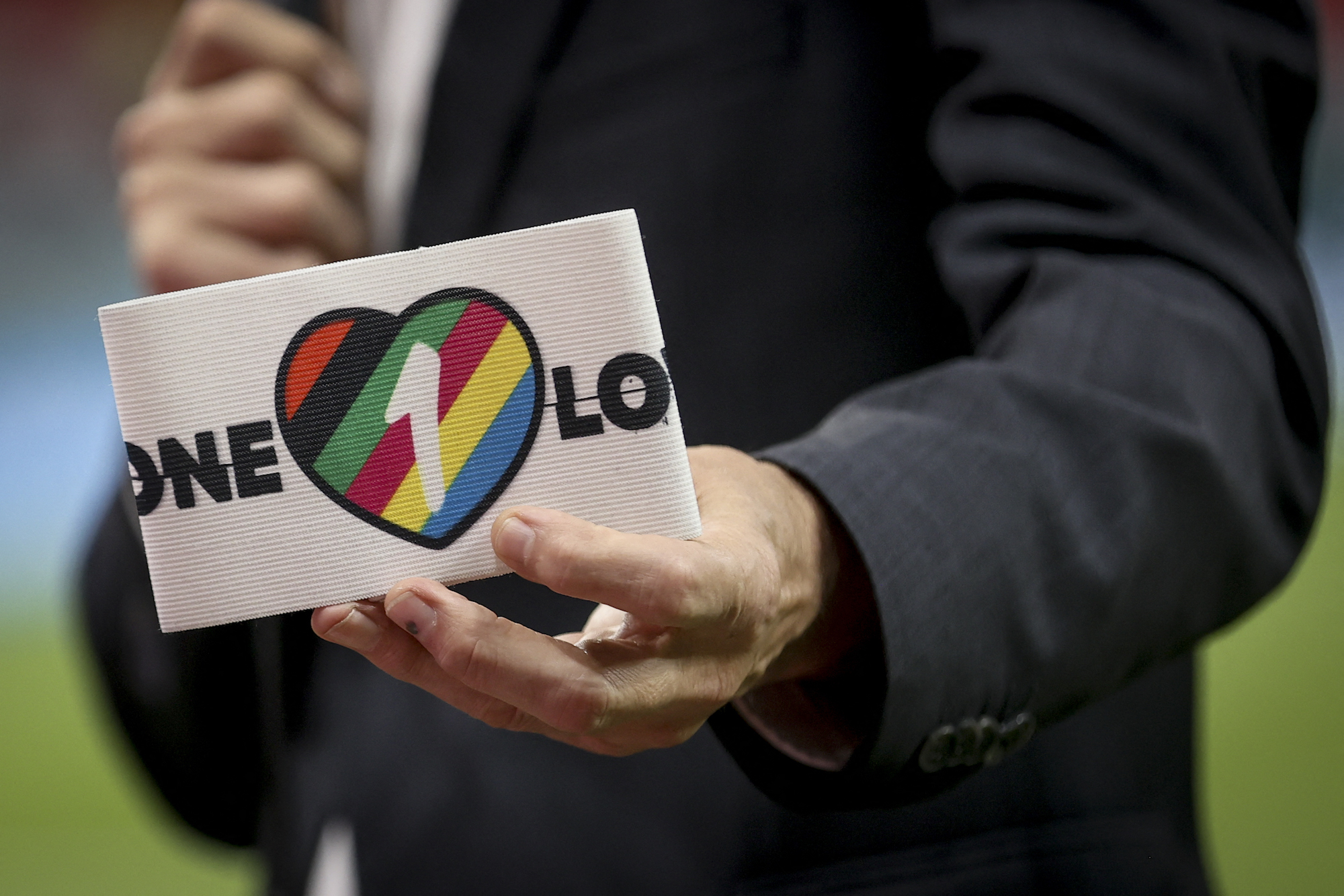
Football’s global governing body finds itself at loggerheads with seven European countries over the possibility of sanctions for any player wearing the “OneLove” armband during a game.
Fifa’s last-minute announcement has created a rift between the governing body and the seven countries involved, although both sides have been criticized.
The “OneLove” armband – which features a heart-shaped silhouette striped in different colours – is intended to be worn by captains of England, the Netherlands, Belgium, Denmark, Germany, Switzerland and Wales at the World Cup to promote inclusion and solidarity with different gender and sexual identities people.
But just hours before England captain Harry Kane wore the armband against Iran on Monday, FIFA said any player who wears it will receive a yellow card, exposing them to a sending-off or penalty. Danger of being banned.
FIFA rules that team captains must wear an armband provided by the governing body, although it says it “supports all legitimate causes such as ‘OneLove’.”
The fiasco has become an episode in the tournament itself.
While players like Kane don’t wear armbands, Belgian Foreign Minister Hajja Rahbib wore them when he spoke with FIFA president Gianni Infantino during Belgium’s World Cup match against Canada on Wednesday.
German Interior Minister Nancy Faeser also wore the armband as Infantino sat next to her country’s 2-1 win over Japan.
In a joint statement, seven European federations said they asked their captains not to wear the “OneLove” armband because they could not “put players in a situation where they could face sporting sanctions including a yellow card.”
But some former players believe it’s a risk worth taking.
“That would be a great statement,” former Republic of Ireland midfielder Roy Keane said as a pundit on ITV. “Do the first game, [and] What a message it would be if you got a yellow card. “
But others have questioned the extent of the gesture in Qatar, where sex between men is illegal and punishable by up to three years in prison.
Australia midfielder Jackson Owen told reporters: “Conversations I’ve had with people in the LGBTQI+ community have described the message as vague and lacking a real statement of what it’s actually trying to achieve.”
One campaign group agreed.
“The ‘OneLove’ bracelet was nothing more than a symbolic gesture,” Football Pride representative Khya Gott told CNN Sport.
“It didn’t make the dramatic statement they wanted. The gestures of the players are important and very much needed, but only if they’re done correctly.”
continue reading Gentlemen.